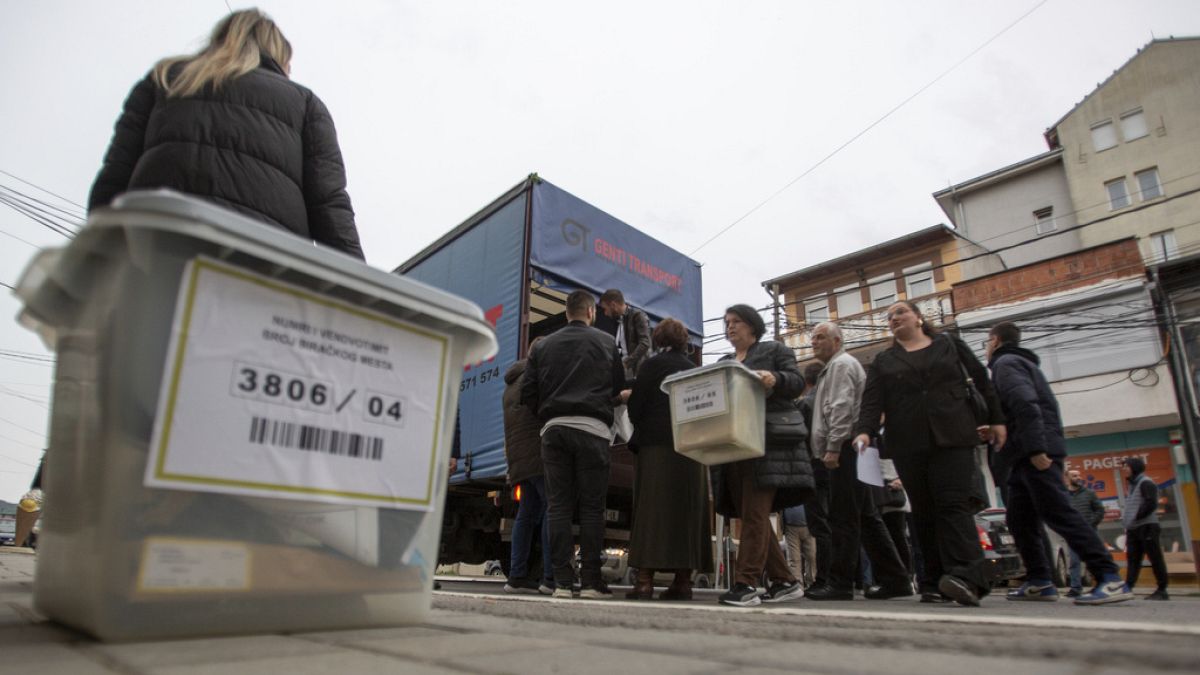The ballot follows mayoral elections last April which were overwhelmingly boycotted by ethnic Serbs as part of a campaign for greater autonomy.
Residents in four Serb-majority municipalities in northern Kosovo cast their votes on Sunday on removing their ethnic Albanian mayors from office.
The referendum, endorsed by Western nations, aims to alleviate tensions between Kosovo and neighbouring Serbia, both aspiring for European Union membership.
Serbia endorses calls for mayors' resignation
The main ethnic Serb party in Kosovo, Srpska List, which maintains close ties with Belgrade, has urged a boycott of the vote.
An estimated 46,500 residents are anticipated to participate in 47 polling stations, with a majority vote required for the mayors to step down.
In June, Kosovo's Prime Minister Albin Kurti proposed new elections in North Mitrovica, Zvecan, Leposavic, and Zubin Potok if 20 per cent of the municipalities' electorates supported a petition for the polls. Residents voted in favour of the petition in January.
Upon the assumption of office by Albanian mayors last May, Kosovo Serbs clashed with security forces, including NATO-led KFOR peacekeepers, resulting in injuries to 93 troops amid protests against the election results.
Kosovo, formerly a Serbian province, saw a shift in status following a 78-day NATO bombing campaign in 1999, which ended a conflict between Serbian government forces and ethnic Albanian separatists.
The aftermath of the war, which claimed around 13,000 lives, predominantly Albanian, led to Serbian forces withdrawing. Serbia still does not acknowledge Kosovo's 2008 declaration of independence.
Serbia - Kosovo Tensions
Recently, Kosovo took strides towards joining the Council of Europe, despite Serbian opposition. However, Belgrade's authorities delayed Kosovars' travel home for almost 20 hours at border checkpoints, citing security concerns.
Pristina condemned this action, accusing Belgrade of holding Kosovars hostage due to its objection to Kosovo's Council of Europe membership. The U.S. and E.U. decried the obstruction of free movement between the two nations.
In another development, Kosovo announced its first nationwide census since 2011, encompassing the ethnic Serb minority in the north.
The Srpska List party opposed the census, alleging it was a ploy by Kurti's government to highlight its purported success in expelling some 250,000 Serbs during the 1999 conflict.
Pristina's recent decision to prohibit ethnic Serbs from using the Serbian currency, the dinar, in Kosovo's Serbian-run institutions, including schools and hospitals, has further escalated tensions.
Efforts by the United States and the European Union to revive the Pristina-Belgrade dialogue face challenges.
Talks halted following a deadly shootout in September, where a Kosovo police officer and three Serb gunmen were killed. Brussels has cautioned that the refusal to compromise jeopardizes Serbia and Kosovo's EU accession prospects.
Amid Russia's aggression against Ukraine, the EU aims to maintain Western Balkan countries' alignment with the West, including Serbia, Kosovo, Bosnia, Montenegro, North Macedonia, and Albania, all at various stages of the accession process.
